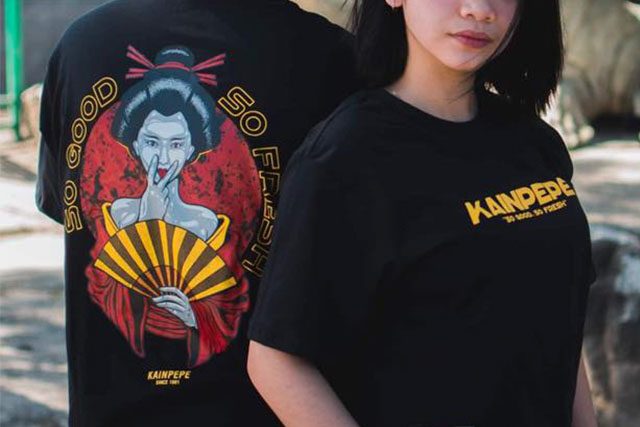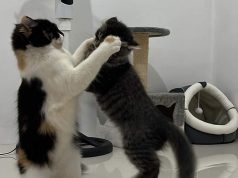The owner of an obscene online clothing shop continued to defend his brand’s concept amid its perceived objectification of women and promotion of sexual violence through its brand name, shirt designs and suggestive marketing.
KNPP Clothing Line in a now-deleted Facebook post (as well as page) issued a supposed apology to Filipinos after it was condemned for sexualizing women and trivializing acts equated to sexual harassment.
Most of the brand’s shirt designs explicitly depict a woman’s reproductive organ or the words “kain pepe” which suggests oral sex in that context.
“Kain” is the Filipino term for “eat” while “pepe” is a Filipino slang term for vagina.
While the original page of the clothing line has been deleted, some social media users were able to take screenshots of the brand’s excuse which some described as “pathetic.”
im sorry this pathetic excuse is just too funny. if the message is clearly to encourage people to eat properly, then maybe the setting should’ve been in a restaurant or a cafe or something ACTUALLY related to eating properly and the models shouldn’t be posing like that pic.twitter.com/adjBRUM93z
— clarice (@iveronclarice) January 24, 2020
KNPP claimed that “pepe” pertains to a common Filipino nickname for young boys while “kain” supposedly refers to its basic, surface-level meaning, “to eat.”
“The real purpose of the brand name is simply to encourage adolescents and teenagers to eat properly. It was named that way so that it would catch (people’s) attention easily,” the brand said.
ALSO READ: Gabriela Youth slams lewd clothing line’s attempt at a cunning excuse
Claiming that it meant “pepe” to be a name of a boy and that “kain” referred to eating well, the brand reasoned that “teenagers nowadays lack nutrition” due to social media fixation which makes them reportedly “miss a meal.”
“Through the shirts, they are at least reminded to also pay attention to their nutrition. That’s what we really wanted to convey. Objectifying women is definitely not the intention,” the brand added as it shared a picture of a female model in black lacy underwear.
The clothing line’s original Facebook page with the statement has since been deleted or removed but another page with the same name surfaced without the previously condemned posts promoting the brand.
The new page, however, continues to justify its supposed pro-nutrition concept and promote shirts with lewd graphics.
The problem with the brand
The clothing line contained explicit imagery and was perceived to be trivializing acts considered as sexual violence against women.
Gabriela Women’s Party decried the brand and said that it reduces women to “mere objects of sexual desire.”
“Women are not objects of pleasure and satisfaction. This shameless advertising and display of merchandise that degrade, objectify and hypersexualize young girls contribute to gender stereotypes that trivialize violence against women and children,” it said.
A Twitter user pointed out that if KNPP aims to promote proper nutrition, its promotional pictures should’ve been taken in a “restaurant or cafe” without some of the models posing suggestively.
Another user said that its so-called nutrition concept does not have anything to do with the lewd designs suggesting oral sex, among others.
“And the design lol, it doesn’t (match) the purpose kuno of the line… ba’t ganito sila????” she commented.
A Facebook user similarly questioned the brand’s attempt to justify its name.
“To encourage adolescents and teenagers to eat properly ba kamo? Pero yung mga nagpo-portray mga naka-panty at nakabukaka. Okay lang kayo?” she wrote.
Sexual objectification refers to the “process of representing or treating a person like a sex object, one that serves another’s sexual pleasure.”
When women are objectified or seen as pure sex objects, “they momentarily view their own bodies from the perspective of the person objectifying them,” an article from The Conversation notes.
“In turn, they become preoccupied with their physical appearance and sexual value to others. This process of ‘self-objectification’ leads women to experience unpleasant feelings such as shame and anxiety. If repeated, it can eventually lead to long-term psychological harm,” it continued.
A psychology professor from the California Polytechnic State University shared that sexual objectification has been linked to “disordered eating, appearance anxiety, body surveillance, body dissatisfaction and shame, depression, substance abuse, and sexual dysfunction.”










